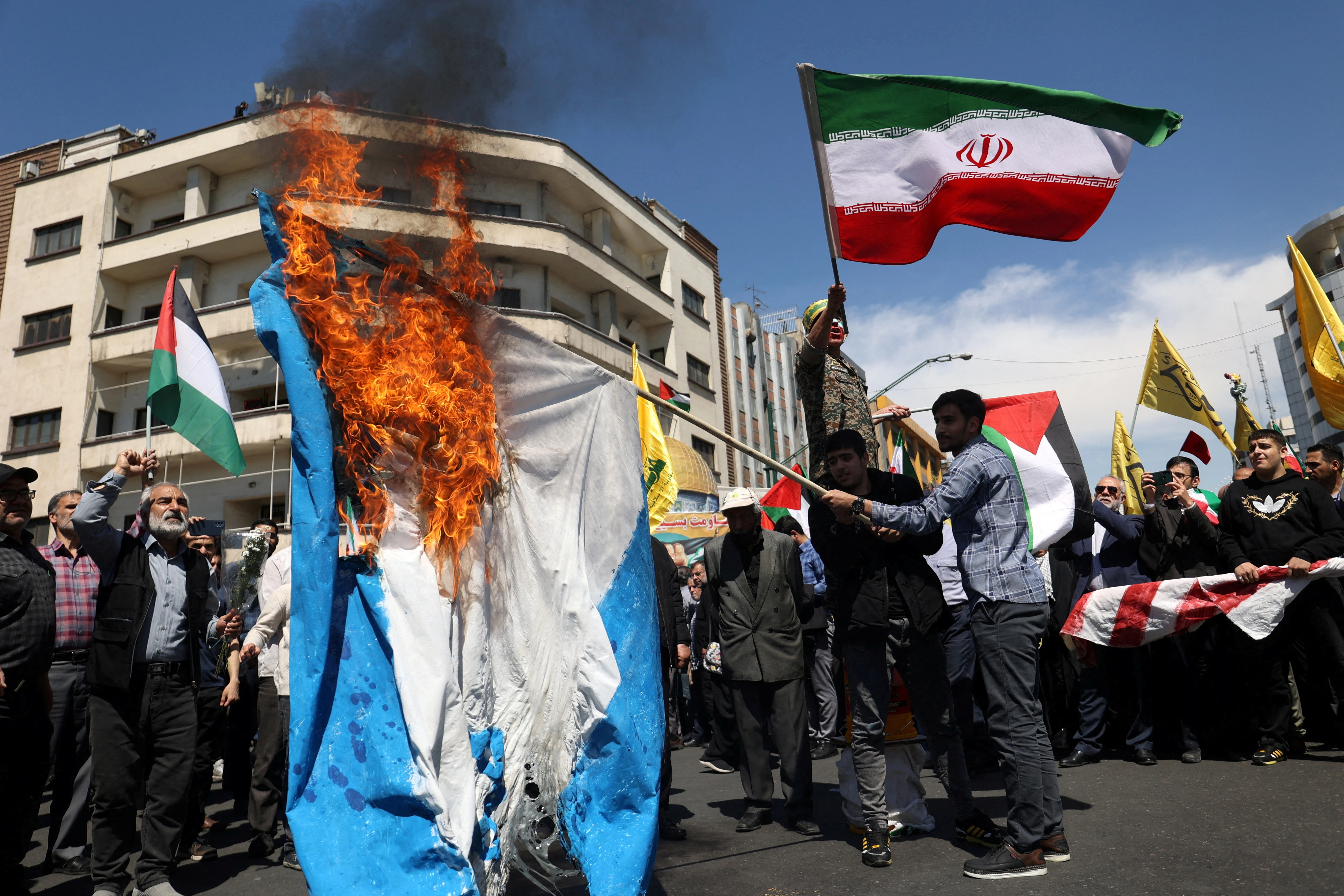Iran-Israel tension

Stay tuned with 24 News HD Android App

The Iranian missile attack on Israel on October 1, 2024, sparked reports of an imminent Israeli retaliation, prompted by the assassination of Hezbollah leader Hassan Nasrallah on September 27. In response, Prime Minister Netanyahu addressed Iran, and specific targets for the counterattack were approved. The US supported Israel's right to retaliate, with America issuing a statement to that effect.
On October 18, 2024, classified documents labelled "Top Secret" were leaked, revealing detailed Israeli plans to attack Iran. These documents, dated October 15 and 16, 2024, outlined the relocation of advanced munitions, military drone operations, and Air Force exercises. Satellite imaging conducted by US intelligence confirmed Israel's possession of nuclear weapons and showed the Israeli Air Force handling air-launched ballistic missiles, including the Golden Horizon and ROCKS systems.
In light of a potential Israeli attack on Iran, the Revolutionary Guards cautioned Netanyahu that Iran would retaliate with severe consequences, putting Israel's airspace and bases, as well as those of collaborating countries, squarely in its crosshairs. Iran's nuclear and oil facilities are potential targets for Israel, although the US opposes this, keen to avoid escalating regional tensions before the presidential election.
Meanwhile, the Revolutionary Guards are gearing up for a possible attack while warning Israel, as part of their mandate to protect Iranian military bases, key figures, and the army, both domestically and internationally, and quell opposition resistance. Iran has significantly bolstered its technological and nuclear capabilities over the past 20 years, despite stringent international sanctions. This growth underscores Iran's firm stance against Israeli actions in the Gaza Strip, Jabalia camp, and Beirut, Palestine, and its willingness to challenge Israel.
Israel responded to the October 1st Iranian ballistic missile attacks with airstrikes in Tehran, Shiraz, Isfahan, and Karaj, targeting military installations, drones, and power stations, including air capabilities. Iran commented on the Israeli attack, reserving the right to respond to aggression and warning that Israel will face a proportionate response. Iranian military officials stated that their air defense system thwarted attacks near Tehran, calling it a failed attempt by Israel to magnify a weak attack.
The Revolutionary Guards denied any office was targeted, while the Iranian Air Defense confirmed normal airport operations and limited damage. Additionally, a video of the failed Israeli missile attack was released. Separately, The White House stated that the attack on Iran was a pre-notified Israeli defense exercise, with President Joe Biden informed in advance.
The international community is up in arms over Israel's recent attack on Iran, with Saudi Arabia condemning it as a blatant breach of national sovereignty and international laws. Pakistan has also joined the chorus of disapproval, with Foreign Office spokesperson Mumtaz Zahra Baloch stating that Israel's actions are a clear infringement on Iran's sovereignty and territorial integrity.
The situation is particularly worrisome, as it escalates tensions in a region already prone to conflict and instability. Many are calling for peaceful measures to resolve regional conflicts, and Baloch is urging the United Nations Security Council to take immediate action against Israel's reckless behaviour.
